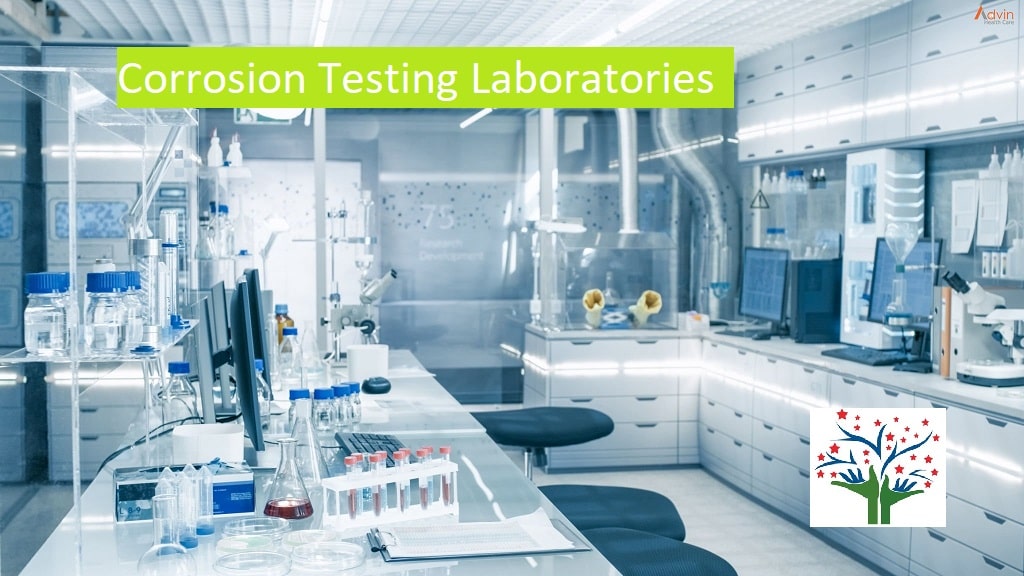Corrosion Testing Laboratories
Corrosion testing laboratories are specialized facilities that employ cutting-edge techniques to evaluate the corrosive behaviour of materials, products, and infrastructure, ensuring their reliability and longevity.
Corrosion, the natural process of material deterioration due to environmental interactions, poses a significant challenge in various industries, infrastructure, and technology. The consequences of corrosion can be severe, leading to safety hazards, economic losses, and environmental impacts.
To combat this relentless enemy, corrosion testing laboratories play a pivotal role in ensuring the reliability and longevity of materials and products.
These specialized facilities employ cutting-edge techniques and a multidisciplinary approach to study, prevent, and mitigate the effects of corrosion.
In this article, we explore the significance of corrosion testing laboratories and their contributions to safeguarding our present and preserving the future.

Understanding Corrosion
Corrosion is a ubiquitous phenomenon that affects metals, alloys, polymers, and composites. It results from chemical or electrochemical reactions between a material and its surrounding environment, such as moisture, air, acids, or salts.
These reactions lead to the degradation of the material’s properties, including strength, appearance, and functionality.
Corrosion is categorized into various types, including uniform corrosion, localized corrosion (pitting and crevice corrosion), galvanic corrosion, and stress corrosion cracking. Each type requires specific testing methods and preventive measures, making the role of corrosion testing laboratories all the more crucial.
Read more about Corrosion testing at Data Centre
The Role of Corrosion Testing Laboratories:
Corrosion testing laboratories play a multifaceted role, encompassing research, evaluation, standardization, and consultancy services. Here are some key aspects of their significance:
- Material Evaluation and Selection
Industries rely on corrosion testing laboratories to evaluate the corrosion resistance of different materials before integrating them into critical applications. By subjecting materials to controlled environments and stress conditions, these labs can predict how various substances will behave in real-world scenarios.
- Product Development and Quality Assurance
Manufacturers of metals, coatings, paints, and protective films use corrosion testing laboratories to develop and refine products with enhanced resistance to corrosion. Quality assurance tests ensure that materials and products comply with industry standards, regulatory requirements, and customer expectations.
- Failure Analysis
When corrosion-related failures occur, forensic analysis by these laboratories can determine the root cause and help prevent similar incidents in the future. Such investigations are essential for industries like oil and gas, aerospace, and maritime, where catastrophic consequences of corrosion failure can be devastating.
- Environmental Impact Assessment
Corrosion testing laboratories assist in assessing the environmental impact of various materials and coatings, aiding industries in making eco-friendly choices and minimizing their carbon footprint.
- Infrastructure Maintenance
To ensure the integrity and longevity of critical infrastructure, such as bridges, pipelines, and storage tanks, periodic corrosion assessments are necessary. These evaluations are conducted by corrosion testing laboratories, helping prevent potential disasters and costly repairs.
- Research and Innovation
Advancements in materials science and corrosion prevention techniques are possible due to ongoing research conducted in these laboratories. Researchers investigate new coatings, inhibitors, and surface treatments to combat corrosion more effectively.
Corrosion Testing Methods:
Corrosion testing laboratories employ a range of techniques to simulate and assess corrosion behaviour under controlled conditions. Some common methods include:
Salt Spray Testing: This test creates a corrosive environment by exposing samples to a salt spray, simulating harsh marine or coastal conditions.
Learn more about Salt Spray Testing
Electrochemical Testing: Techniques like Potentiodynamic Polarization and Electrochemical Impedance Spectroscopy (EIS) help understand the electrochemical behavior of materials and identify their susceptibility to corrosion.
Cyclic Corrosion Testing: It involves subjecting samples to alternating environmental conditions, replicating the cyclic nature of real-world exposure.
Hydrogen Induced Cracking (HIC) Testing: This test assesses the susceptibility of materials to cracking caused by hydrogen absorption.
Crevice Corrosion Testing: Evaluates the resistance of materials to localized corrosion that occurs in crevices or gaps.
Read more detailed Article on Corrosion Testing Methods
Corrosion Testing Machine
A corrosion testing machine is a specialized apparatus designed to evaluate and simulate the effects of corrosion on various materials, particularly metals and alloys.
It plays a crucial role in industries such as manufacturing, automotive, aerospace, and marine, where the degradation of materials due to environmental factors like humidity, saltwater, chemicals, or temperature fluctuations can lead to significant safety and economic concerns. These machines use controlled conditions to accelerate the corrosion process, allowing researchers and engineers to assess material durability, identify weaknesses, and develop corrosion-resistant materials and coatings.
By subjecting test samples to corrosive environments and monitoring their performance over time, corrosion testing machines enable comprehensive analyses, helping industries ensure the reliability and longevity of their products in real-world applications.
We offer Corrosion Testing Services. Contact us now for more Information.
Corrosion Testing Laboratories
Corrosion testing laboratories stand at the forefront of safeguarding our infrastructure, industries, and technologies from the destructive forces of corrosion. Through meticulous research, testing, and evaluation, they provide invaluable insights and solutions to address corrosion-related challenges. As we continue to push the boundaries of innovation and development, the role of these laboratories becomes increasingly critical in preserving the future and ensuring a sustainable and corrosion-free world. Their ongoing efforts will undoubtedly pave the way for stronger, safer, and more durable materials that withstand the test of time.
The most popular corrosion tests include salt spray test (ASTM B117) and electrochemical impedance spectroscopy (EIS). The salt spray test assesses a material’s resistance to corrosion by subjecting it to a salt-laden, humid environment, while EIS measures the impedance response of a material to an applied electrical signal, providing valuable information about its corrosion kinetics and protective performance.
The ASTM test for corrosion is the Salt Spray Test, designated by ASTM B117. This test involves exposing test specimens to a controlled salt-laden, humid environment to evaluate their corrosion resistance and performance under harsh conditions.
